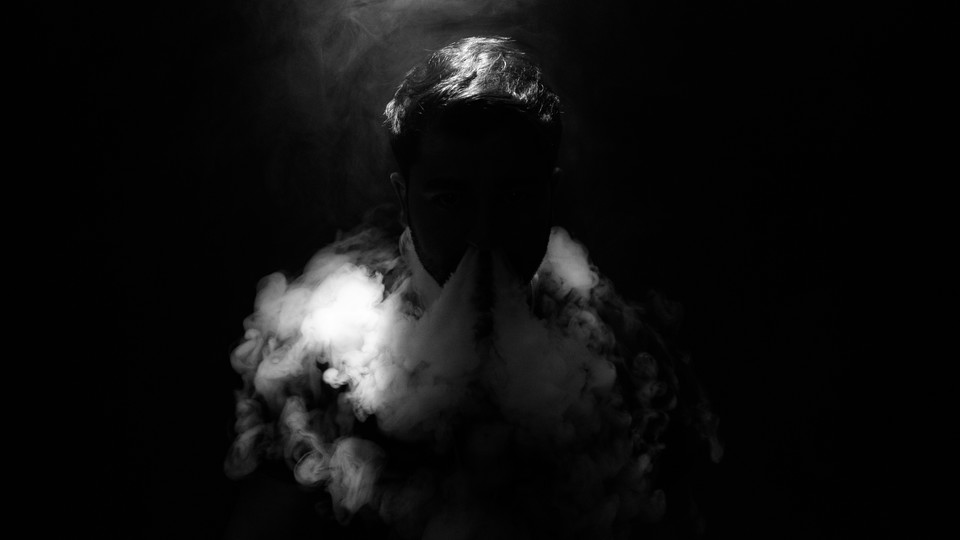
Object Of My Affection
What Happens When A Brand We Know (Or Think We Know) And Love Turns Out To Be Something Altogether Different?
By Jennifer Latson
What Happens When A Brand We Know (Or Think We Know) And Love Turns Out To Be Something Altogether Different?
Some brands feel like old friends. Take Newman’s Own, which donates its profits to charity, or Patagonia, whose environmental activism has won the admiration, and the patronage, of many Americans — even if we find their parkas pricey.
Brands like these earn our loyalty by appealing to our better natures. They make us feel good about ourselves when we support them. For some of us, buying a Newman’s Own product is the emotional equivalent of helping out our beloved, stunningly blue-eyed, uncle.
But when beloved brands do wrong, it can be as devastating as being betrayed by Uncle Paul. And some of America’s best-loved companies and public figures have done a lot of wrong lately.
Many of us were shocked when Volkswagen’s “clean diesel” technology turned out to be mere smoke and mirrors — and when the CEO of Audi, Volkswagen’s parent company, was arrested in 2015, it drove home the disconnect between the brand’s reputation and reality.
Nike, meanwhile, earned our affection with ads empowering female athletes — such as the 2007 billboard featuring Serena Williams, tennis racket in hand, asking, “Are you looking at my titles?” Those of us who bought into their brand messaging were dismayed to hear that Nike’s female employees faced some of their toughest challenges at work, where, as the New York Times reported in April of 2018, women who reported being harassed and routinely marginalized were largely ignored.
And then there are the famous figures whose actions belie their wholesome public persona. When Bill Cosby was convicted in April of 2018 of drugging and sexually assaulting a woman — one of more than 50 who’ve accused him of similar crimes — it marked the final stage of his transformation, in the public’s eye, from father figure to predator. For those of us who grew up watching “The Cosby Show,” reconciling the Cosby brand with his true identity has been a heartbreaking struggle.
Why should we take it so personally when companies or celebrities fail to live up to their own branding?
“One of the reasons brands are so powerful is that their connections strengthen over time, becoming deeply embedded in our minds,” writes Tim Calkins, a marketing professor at Northwestern University’s Kellogg School of Management. “In many cases, our belief in a brand can supersede reality. We are quick to forgive brands we trust.”
Our unwillingness to question brands we’ve come to admire is dangerous, Calkins argues: It’s the reason Cosby escaped justice for so long, despite the mounting evidence of his misdeeds. Few of us could believe that “America’s Dad” would behave so despicably — so we didn’t. At least, not until the evidence became impossible to ignore, well beyond the point where we would have believed similar allegations against a lesser-known figure.
“The reason Cosby’s conviction is so notable is that it highlights the disconnect between his brand image and reality. The funny, casual Cosby isn’t real. It is an image that he created,” Calkins writes.
But the image that good branding creates becomes so firmly embedded in people’s minds that it’s virtually impossible to shake, says Utpal Dholakia, a marketing professor at Rice University’s Jones Graduate School of Business. Even revelations of hypocrisy by a brand behemoth like Nike — in the form of marginalizing female employees while pouring millions into messaging that empowers female athletes — aren’t enough to knock it off its pedestal.
“That’s why the branding is so important. The consumer’s connection is with the brand, and not the people behind the brand,” Dholakia explains. “I’m not saying it’s good or bad, but that’s the effect it has. That’s why we spend so much money on advertising and establishing brand messaging.”
The ability of good branding to overcome bad publicity was perhaps most apparent when beloved Texas brand Blue Bell issued a series of ice cream recalls in 2015 after listeria outbreaks killed three people and sickened others.
“Each time, they would take their products off the shelves and then relaunch them,” Dholakia says. “And people were thrilled to go out and buy those products again. Every time.”
Blue Bell’s brand appeal, built on a marketing campaign that emphasized its small-town roots, was enough to keep its customers loyal despite the threat of illness. For many consumers, supporting the brand was a way to identify as a true Texan. Blue Bell, they felt, was in their blood.
Successful brands really do become part of our sense of self, writes Hilary Jerome Scarsella, who is completing a PhD in theological studies at Vanderbilt University. Scarsella ascribes to psychoanalyst Heinz Kohut’s theory that selfhood develops in response to other people and things, using the term “cultural selfobjects” to describe those that form a vital part of selfhood for an entire group of people — as Cosby did in American culture.
“Bill Cosby long represented an image of fatherhood, family and upper middle-class life that both reflected and shaped what Americans valued, understood themselves to be, and saw as possible for their lives. In this way, he became part of the American self,” Scarsella wrote in a recent essay.
“As a cultural selfobject, Cosby’s acts of violence against individual women were also a betrayal for all those who built a part of themselves in response to the values he mirrored back to them,” Scarsella explains. “Because cultural selfobjects shape who we are, this betrayal and loss is profound. It results in a loss of a part of our own selves.”
The revelations that Nike executives mistreated female employees, however, don’t seem to have evoked a similarly profound sense of loss. In fact, according to YouGov BrandIndex, a service that tracks the public’s perception of brands, Nike experienced a sharp but short-lived drop in consumer perception just after stories emerged about its toxic workplace — and has since rebounded to its previous levels.
While it seems like taking the moral high ground would give brands farther to fall when they do wrong, the opposite is actually true, says Dholakia. That’s because the more powerful and persuasive your branding is, the better insulated you are from bad publicity.
“In marketing, we call it the brand insulation effect: The stronger the brand, the more impervious it is to these occurrences,” Dholakia says.
But good branding has its limits, as Cosby’s fall from grace reveals. Individual reputations are easier to tarnish than the multifaceted brand identities. Nike’s reputation doesn’t hinge entirely on empowering women, after all. But when your brand rests exclusively on being America’s Dad, it’s impossible to recover from the damage of doing something egregiously un-dad-like, Dholakia says.
“Once your reputation gets hurt, it’s hurt. That’s all Cosby has: his reputation,” he says. “It’s not a brand that has many offshoots.”
Even for large brands, however, it can be hard to bounce back from a scandal that compromises your core identity. That’s where good damage control comes in — and the best takes the form of honesty, transparency, and sincere contrition, explains Scott Davis, chief growth officer at Prophet, a brand and marketing consultancy.
Starbucks offers another example. In April of 2018, two black men were arrested at a Philadelphia Starbucks store after an employee called the police because they used the bathroom without buying anything. For a company that has worked for years to build a reputation as “an inclusive, progressive, forward-thinking beacon of a brand,” the incident could have dealt a devastating blow, Davis wrote in an essay for Forbes.
But Starbucks CEO Kevin Johnson handled it the way you’d expect a good leader — or a good friend — to do when they’ve let you down.
“He accepted accountability for the incident, acknowledged that Starbucks must do better and apologized to all that were impacted by this incident but, in particular, to the two men who suffered this incredible indignity,” Davis writes. “He promised change and did not kick the can down the road.”
Researchers have found that, paradoxically, doing wrong and then making it right can actually strengthen the relationship between a company and its customers — just as it can between friends. These are defining moments in any relationship, and just as a betrayal by a close friend can end the friendship, it can also be an opportunity for growth and reconciliation.
In fact, Dholakia argues, we tend to be quicker to forgive a brand that lets us down than, say, an uncle.
“People are not all that forgiving of individuals,” he says. “But brands are powerful. People are extremely loyal to brands.”
Jennifer Latson is a writer and editor at Rice University’s Jones Graduate School of Business and the author of The Boy Who Loved Too Much, a nonfiction book about a rare disorder called Williams syndrome.
Never Miss A Story


